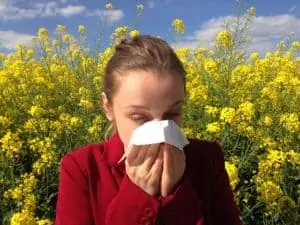Archives

Choose the Right Brush
The right toothbrush for you depends on a few factors, including the size of your mouth. Toothbrushes come with various sized heads, so if you have a smaller mouth, choose a brush with smaller brush head. Also make sure the bristles are labeled as soft. Using bristles that are too tough can damage enamel and create problems.
Use Proper Technique
It doesn’t take a lot of elbow grease to thoroughly clean plaque and bacteria off of teeth. In fact, scrubbing too hard can damage teeth. Instead of using a back and forth motion, try to focus in brushing in soft, gentle circles. Don’t forget to hold the toothbrush at a 45 degree angle to get up under the gum line, too.
Replace When Necessary
If your bristles have begun to fray, it’s time to get a new toothbrush. It’s actually overdue for a replacement. When the bristles are nice and tightly fit together they can more easily get in between teeth and under the gums. When they separate, you won’t get as good of a clean.
Commit to Twice a Day
Your dentist in Sparks and the American Dental Association recommend brushing for two minutes, twice day, every day. A thorough cleaning in the morning helps remove plaque and bacteria that have built up overnight, and another two minutes before bed removes food particles and even more bacteria. Not brushing as often as you should may lead to gum disease, which not only affects your oral health, but overall health as well.
Gum Disease & Overall Health
Gum disease is caused by a buildup of bacteria under the gum line. If left untreated it can cause tooth loss and other whole-body concerns including:
- Heart Disease
- Respiratory Problems
- Diabetic Complications
Following the two minute, twice a day guideline and using the right technique goes a long way in keeping your smile in its best shape. But it’s more important than that. Proper oral hygiene can reduce the risk of gum disease and help protect your entire body.
Besides a great at-home routine, maintaining appointments at our Sparks dental office bi-annually will do even more for your health. These regular visits provide a deeper cleaning and remove even more plaque and bacteria buildup. They also give us a way to monitor your oral health for any potential problems so we can treat them early.
If you’re overdue for a dental cleaning, we welcome you to schedule an appointment with us today.

Itchy, Stuffy, and Drippy
Most of us are well aware of the unpleasant symptoms of an allergy flare up. The itchy, watery eyes, the neverending nasal drip, and the sinus stuffiness are all common side effects. And while they’re certainly annoying, they can also affect more than you may think. When your body comes in contact with an allergen, it responds by producing more mucus than normal. This mucus is gross, thick, slimy stuff that blocks airways and sinuses and makes it hard or impossible to breathe out of the nose. Instead, our bodies automatically adapt to breathe from the mouth. This mouth breathing is what’s concerning to your dentist in Sparks.
Why Mouth Breathing is Concerning
Mouth breathing is a bigger problem than it may initially appear. In fact, a study conducted by the Academy of General Dentistry reported that mouth breathing can affect oral health in a variety of ways. Too much mouth breathing as a child can cause a gummy smile or even problems with facial development. And the problems don’t go away in adults either. Mouth breathing has been linked to overall oral health issues, mostly because it causes dry mouth.
Dry Mouth & Oral Health
Dry mouth is an incredibly common complaint in many dental patients, and while it’s certainly uncomfortable, it’s also dangerous. Dry mouth essentially means that saliva production has decreased. And this is a problem. Saliva is responsible for rinsing away bacteria and neutralizing acids in the mouth that attack tooth enamel and lead to decay. Without saliva, teeth are constantly exposed. But that’s not all. Dry mouth can also cause chronic bad breath and is one of the causes of gum disease. Gum disease, if left untreated, can begin to affect the rest of the body and increases the risk of stroke, heart disease, and heart attacks.
The Problem with Allergy Medicine
To get relief from allergy symptoms, we usually turn to our trusted antihistamine. However, while this medicine may indeed ease itchy eyes or decongest sinuses, they may also make dry mouth worse. To help protect yourself and get the allergy relief you want, try:
- Chewing sugar-free gum
- Using lubricating mouthwash
- Drinking water
- Sleeping with a humidifier in your bedroom
Never stop any medication recommended by your doctor without first talking about it.
If you’re concerned that your allergies or allergy medication is causing dry mouth and putting your oral health at risk, we welcome you to call our Sparks dental office to schedule an appointment. We’re here to help keep our neighbors’ smiles healthy and can help you find relief.
